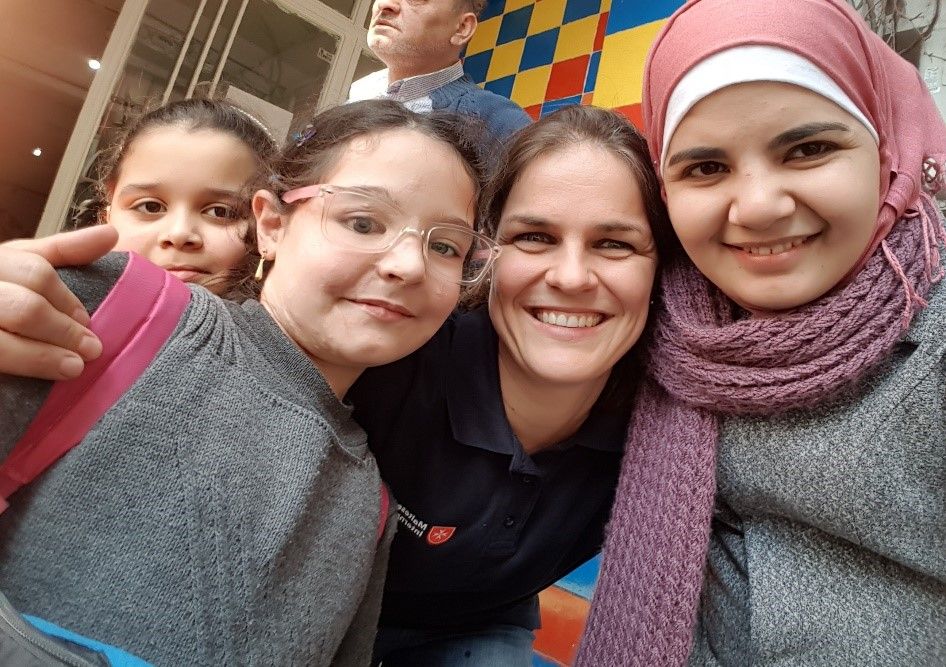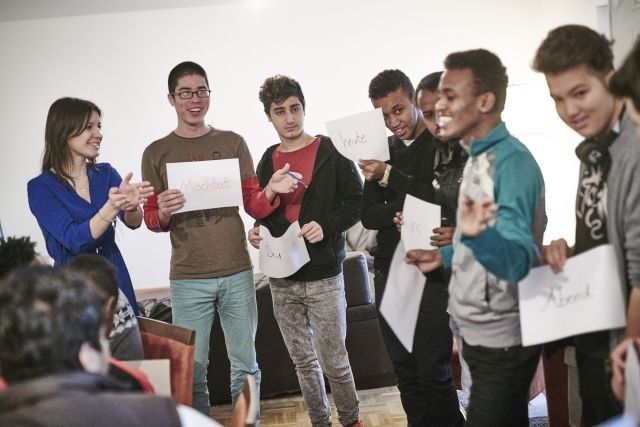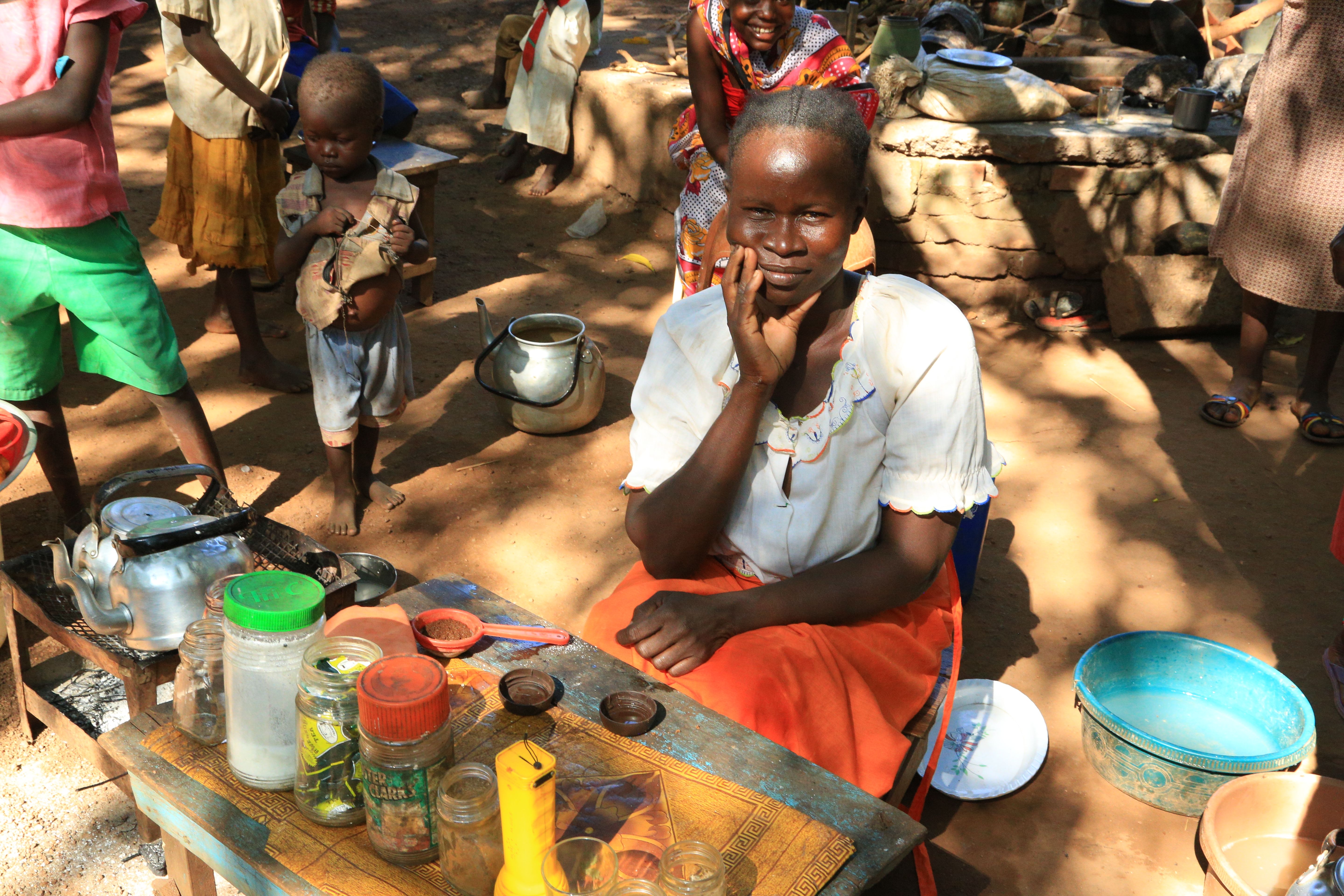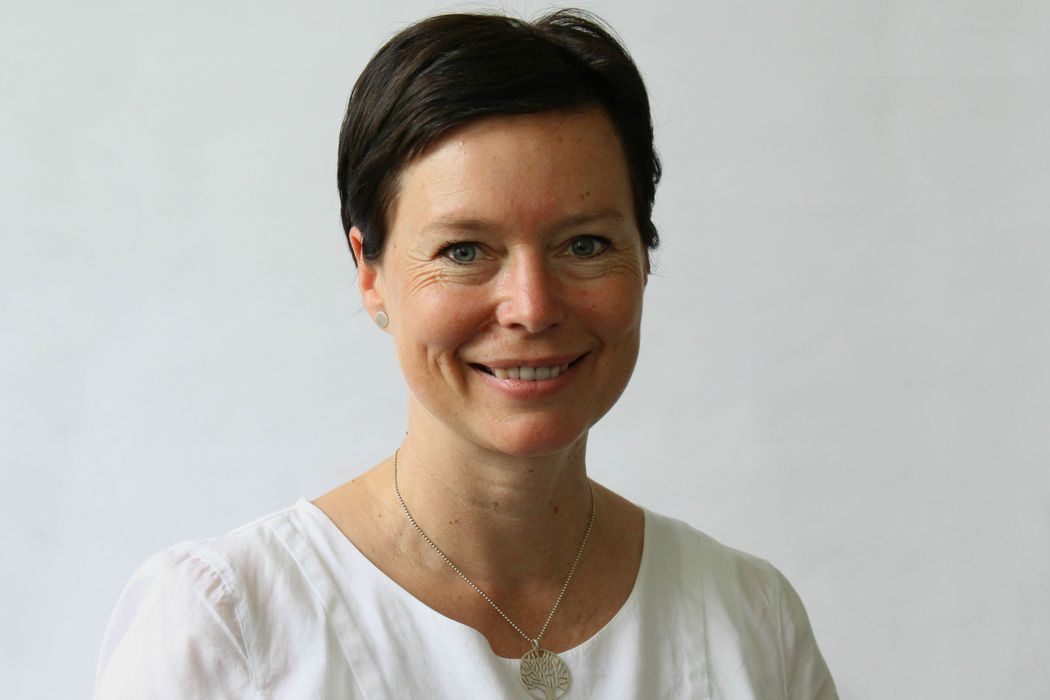Cologne. According to Malteser in Germany, the resilience and willpower of refugees merit deep and absolute respect. “Coping with life’s difficulties is a tremendous achievement for the children, women, and men fleeing from war and hunger”, says Karl Prinz zu Löwenstein, Chief Executive of Malteser Hilfsdienst Germany. A 50-year-old woman flees her home and seeks refuge with her remaining children after losing her husband and a son; a 9-year-old girl is determined to go to school in Turkey despite sustaining serious injuries in the Syrian war; a 17-year-old boy begins an apprenticeship in Germany after only three years of school in his home country: “These people have had to show a strong will to cope with the huge obstacles that have stood in their way”. Malteser supports the willpower of refugees and internally displaced persons in many countries worldwide through appropriate measures.
An example from Turkey: Yasmine is only 9 years old, but has already lost so much: her father, her home, and the sight in one eye. Born in the Syrian city of Homs, she has lived through war and has been on the run for most of her life. She was seven years old when she survived a bombing which killed her father. Along with her mother and two brothers, she fled to neighboring Turkey. She lives in Istanbul with her family under difficult conditions. Nevertheless, for almost one year, Yasmine has been prepared to start schooling. Malteser supports an educational center in Istanbul where Yasmine is learning Turkish so that one day she may be able to attend public school in Turkey. The educational center serves up to about 700 children, offering classes from kindergarten to twelfth grade. This way, these children, even as refugees, are given the opportunity to attend school and learn an occupation.
An example from Germany: 17-year-old Abdel Hak lives in Ingelheim in a residential home for unaccompanied minor refugees. Abdel fled to Germany from Algeria, where he only had a few years of school. At first, he found it difficult to learn German, and had problems with the learning methods, the standard of learning, and the requirements. Marouane Jnieh is the head of Malteser’s youth welfare service in Rhineland-Palatinate. Mr. Jnieh and the supervisor in charge had an idea: a long internship in a car workshop. This is an unusual path, since in Germany much emphasis is placed on school education and qualifications. But for Abdel Hak, this is just the right choice – his interests and skills in the use of technology have brought him recognition at work. He is always motivated to start conversations with his German colleagues, and thereby has improved his knowledge of German. The 17-year-old is finally offered an apprenticeship position, and is integrating into the society. For Jnieh, the goal of youth welfare has been achieved: "The juvenile refugee has become an independent young man who is able to master his everyday life."
An example from South Sudan: Julia Angelo Ucin is 50 years old. She has lost her husband, one of her sons, and her home as a result of the ongoing civil war in South Sudan. Her brother was abducted, and she still does not know if he is alive. Along with more than 10,000 other internally displaced persons, Julia has been living in a refugee camp in the city of Wau since July 2016. Like most other people from her village, she fled her home to seek refuge in the city because of the conflict. To make sure she has enough to eat and to feed her family, Malteser International trained Julia on ways to grow basic food vegetables such as okra, cabbage and pumpkin in the urban environment. She also earns money from selling some of the produce harvested. This has helped Julia provide for her children. In four refugee camps in Wau, Malteser International also provides refugees with clean drinking water and has constructed 18 boreholes so far. According to Julia Ucin: "Now we have enough to eat and our children are doing better."
For Editors:
1. Karl Prinz zu Löwenstein, Chief Executive of Malteser Hilfsdienst Germany, and other experts within and without Germany are available for interviews.
Contact: Katharina Kiecol, +49 221-9800155 katharina.kiecol(at)malteser-international(dot)org
We are urgently calling for donations to help refugees in areas of war and conflict:
DONATE NOW
Donation Reference: “People in need around the world”












